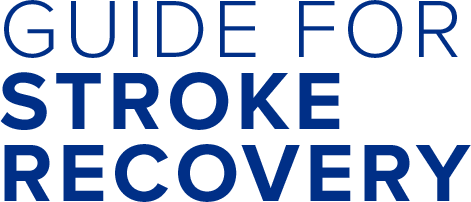Atrial fibrillation is a fast or uneven heartbeat. When your blood is not flowing evenly, it can get stuck in your heart. There, it can form a blood clot. The blood clot can get pumped into the rest of the body. If it reaches the brain, it will cause a stroke. Managing atrial fibrillation will prevent blood clots from forming.
Do I have any of these signs of atrial fibrillation?
You may feel fine and not feel any signs at all. But, some people notice:
- Irregular or fast heartbeat
- Heart palpitations or a rapid thumping feeling in chest
- Chest discomfort, pain or pressure
- Trouble breathing (mostly while active or stressed)
- Tiredness
- Dizziness, light headedness or fainting
- Sweating
- Nausea
Talk to your doctor if you think you may have atrial fibrillation. Your doctor can run a test called an electrocardiogram (ECG) to see if your heart is beating normally.
What can cause atrial fibrillation?
The cause of atrial fibrillation is not always known. It is often related to the heart, other health problems, or lifestyle. Here are some conditions that may lead to atrial fibrillation:
- high blood pressure (the most common cause)
- abnormal structure of the heart
- infection or inflammation of the heart (myocarditis or pericarditis)
- diseases that damage the valves of the heart
- congenital heart disease
- overactive thyroid (hyperthyroidism)
- a blood clot in the lung (pulmonary embolism)
- excessive use of alcohol
- smoking
How can I manage atrial fibrillation?
It is important to speak to your doctor to help you decide on the best treatment for you. Your treatment will be based on:
- your age
- your needs
- your medical history
- how much the symptoms are interfering with your quality of life
You may need to:
- Take blood thinners. This will help prevent blood clots from forming in your heart.
- Keep your blood pressure at a healthy level. For most people, this is at or a little below 120/80.
Visit your doctor regularly to have your atrial fibrillation monitored.
It is a good idea to make healthy lifestyle choices. Any lifestyle changes that lower blood pressure can also reduce your chance of developing atrial fibrillation or help you to control it.
Having read the information in this section, consider the following:
- Do I have any symptoms of atrial fibrillation?
- Do I need to be tested for atrial fibrillation?
- Do I know what my medications are to manage my atrial fibrillation?
- Do I know how exercise affects my atrial fibrillation?
- Do I know how I can continue to lower my blood pressure?
- Do I know how to eat healthy to control my blood pressure?
